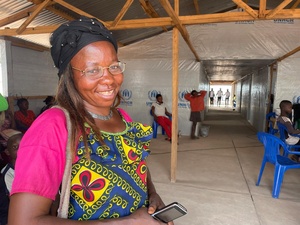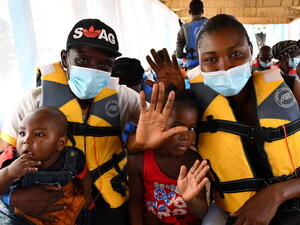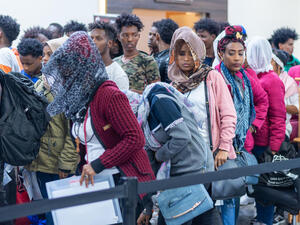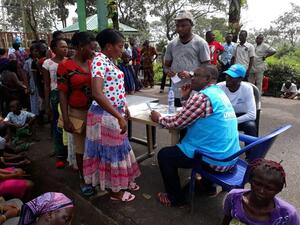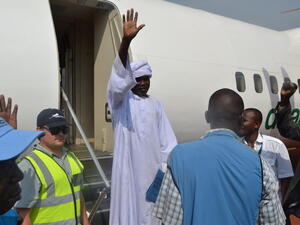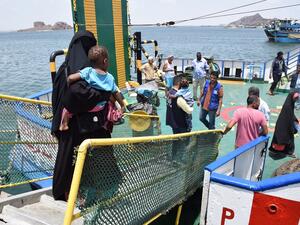African ministers to tackle refugee issues
African ministers to tackle refugee issues
GENEVA - Delegates from 48 African countries meet in Geneva on Friday to discuss a common strategy aimed at easing the negative effects of protracted refugee situations in a continent where tens of thousands of people remain in exile for decades.
The African ministers and senior government officials in charge of refugee issues, joined by UNHCR and major donor states, will examine ways of preventing new refugee crises from dragging on for years. They will look at "best practices" across the continent and make recommendations for policies that allow refugees to become "agents of development" rather than a burden to their host communities.
The informal consultations, chaired by Zambia's Deputy Foreign Minister, were called by UNHCR as a follow-up to a two-day meeting of the signatories to the 1951 Convention and will focus on issues specific to the African continent. Zambia is currently chair of the OAU.
According to a discussion document by UNHCR's Africa Bureau Director, Kolude Doherty, "refugees often develop a dependency syndrome as passive recipients of assistance. Protection problems and insecurity may arise from these situations of enforced idleness." In time, this can lead once hospitable host communities to turn against refugees as a burden and a threat.
Delegates will look at a variety of innovative solutions to ease the burden of longstanding refugee situations. These include new legislation granting refugees access to land and the right to work; the inclusion of self-reliance projects from the early stages of an emergency; and greater investment in education and training.
A new approach will also be sought to reinvigorate refugee protection in African countries, as initiated in last year's OAU / UNHCR meeting of technical experts in Conakry, Guinea, commemorating the adoption of the 1969 OAU Refugee Convention.
To ensure the civilian character of the refugee camps, delegates gathered in Geneva will propose that the OAU adopt a resolution dealing with the separation of armed elements. Some of the measures envisaged could take stock from recent initiatives in Zambia and the Democratic Republic of the Congo, where combatants have recently been successfully separated from civilian refugee populations.
The discussions, introduced by UNHCR's Director of the Department of International Protection, Erika Feller, will also focus on African initiatives to deal with emergencies and situations of mass influxes more efficiently; improve registration and the issuance of identity documents to refugees; and promote responsibility-sharing among nations. The problems posed by irregular movements of refugees who have already found protection in a first country of asylum, as well as mixed flows of migrants and refugees, will also be addressed.
Africa continues to account for the greatest share of resources and attention within UNHCR's programmes for 2002, taking up 35,5% of UNHCR's budget. UNHCR's 2002 budget for the continent amounts to $294 million, including $111.2 million for the East and Horn, $77.9 for the Great Lakes region, $65.9 million for West and central Africa, $39.7 million for Southern Africa and $7.1 million for North Africa. The continent hosts 3.6 million refugees, or 30 percent or the world's refugees. UNHCR also cares for 270,000 returnees, 87,000 asylum seekers and 2 million displaced Africans.
The consultations will take place in Room XVII at Geneva's Palais des Nations, beginning at 10:00 am.


